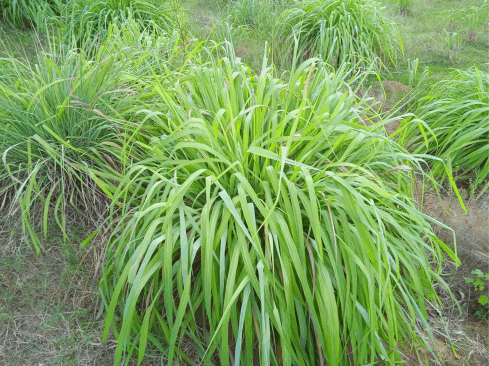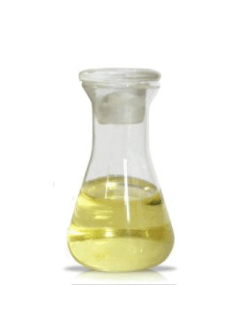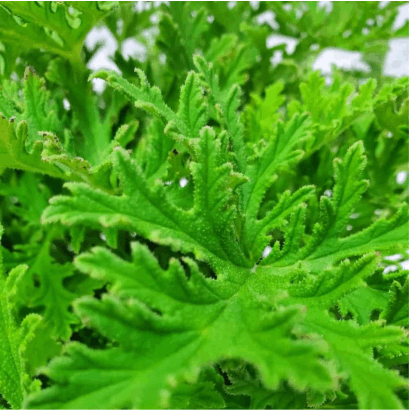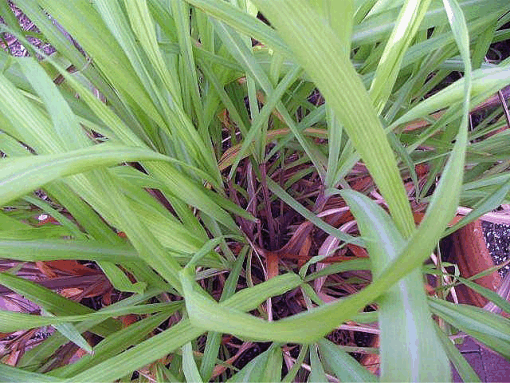What is Citronella Oil?
Citronella oil is a type of essential oil that is well-known for its insect-repelling properties and is used in many commercial insect repellent products.
The oil is extracted from the leaves and stems of Cymbopogon nardus and Cymbopogon winterianus grasses.
These plants are native to tropical regions of Asia, Indonesia, India but can also grow in South and Central America, Africa and Australia.
Citronella plants are often grown in large plantations or farms specifically for the production of essential oils.
What does Citronella smell like?
The oil has a sweet, citrus-like fragrance and is commonly used in aromatherapy, perfumes, candles, and as an insect repellent.
What does Citronella oil look like?
Citronella oil is pale yellow to brownish in color and has a thin consistency.
In 1901, the US Department of Agriculture registered citronella oil as an insect repellent. This registration allowed citronella oil to be legally marketed as an insect repellent in the United States.



Common uses for Citronella Oil?
Citronella oil
Industrial Uses- Fragrance industry: Citronella oil is used as a natural fragrance ingredient in perfumes, colognes, and other personal care products.
- Soap and detergent industry: Citronella oil is used in the production of soaps, detergents, and other cleaning products for its natural disinfectant and fragrance properties.
- Food industry: Citronella oil is used as a natural flavoring agent in foods and beverages, particularly in Southeast Asian cuisine.
- Candle making: Citronella oil is a popular ingredient in candles used for outdoor activities, as it helps to repel insects and add a pleasant scent.
- Industrial solvents: Citronella oil can be used as a solvent for the extraction of waxes, resins, and other organic compounds.
- Veterinary industry: Citronella oil is sometimes used in veterinary medicine as a natural insect repellent for animals.
- Cosmetics industry: Citronella oil is used as an ingredient in cosmetics such as lotions, creams, and lip balms for its natural fragrance and skin-soothing properties.
- Insect repellent: Citronella oil is commonly used in the production of insect repellent products, such as sprays, candles, and lotions, to repel mosquitoes, flies, and other pests.
Is Citronella oil a natural bug repellent?
Yes, citronella oil is a natural bug repellent that is commonly used to repel mosquitoes, flies, and other insects.
How does Citronella oil repel bugs?
The oil contains several compounds, including citronellal, citronellol, and geraniol, which are known to have insect-repelling properties.
How does Citronella Oil deter bugs?
Citronella oil is believed to deter bugs due to its strong scent, which masks the scents that attract insects, such as carbon dioxide and lactic acid, that are emitted by humans and animals.
When insects come into contact with the strong scent of citronella oil, it can be overwhelming and unpleasant, causing them to fly or crawl away.
Is Citronella Oil used in Minus Bite Family Bug Spray?
Yes, Citronella oil is an active ingredient in our all natural family friendly bug spray as well as other highly effective essential oils.
Benefits of Using Citronella Oil on the Skin at the right concentration
Natural insect repellent: Citronella oil can help to repel insects, including mosquitoes and flies, when applied to the skin in the right concentration. This can reduce the likelihood of bites and the transmission of insect-borne diseases.
Antimicrobial properties: Citronella oil has natural antimicrobial properties that can help to prevent infections and reduce inflammation when applied to the skin.
Soothing and cooling: Citronella oil has a cooling and soothing effect on the skin, making it a popular ingredient in lotions and creams for sunburn and other skin irritations.
Pleasant fragrance: Citronella oil has a pleasant citrus-like scent that can provide a refreshing and uplifting aroma when applied to the skin.
Timeline of the Usage of
Citronella Essential Oil- 1901: Citronella oil was registered as an insect repellent in the United States.
- 1948: The United States Environmental Protection Agency (EPA) classified citronella oil as a biopesticide and allowed it to be used as an insecticide and insect repellent.
- 1950s-1960s: Citronella oil became popular as an insect repellent in the United States and other countries, particularly for outdoor activities such as camping and hiking.
- 1970s: Citronella oil was used in the production of candles for outdoor use, due to its natural insect-repelling properties.
- 1990s: Citronella oil was included in the US Environmental Protection Agency’s list of minimum risk pesticides, which are considered to have low toxicity and pose little risk to human health or the environment.
- 2000s: Citronella oil continued to be used as a natural insect repellent in various products, including sprays, lotions, and candles.
Citronella Oil is a biopesticide
A biopesticide is a type of pesticide derived from natural materials, such as plants, bacteria, fungi, or other organisms, that can control or manage pests, including insects, weeds, and plant diseases.
Biopesticides work through various mechanisms, including interfering with pest mating, disrupting pest feeding or development, or directly killing pests.
Would you like some Minus Bite Bug Spray?

Citronella oil is considered a biopesticide, and has been registered by the United States Environmental Protection Agency (EPA) as a minimum risk pesticide, which means it is exempt from registration requirements under the Federal Insecticide, Fungicide, and Rodenticide Act (FIFRA). This classification allows citronella oil to be used as a natural insect repellent and pesticide without the need for extensive testing or registration.
Read More about Citronella Oil
"Plant-based insect repellents: a review of their efficacy, development and testing"

15 Minute Read Published online 2011 Mar 15
"Citronella as an insect repellent in food packaging"

5 Minute Read Published 2005 Jun 1

References:
Trongtokit M, Rongsriyam Y, Komalamisra N, Apiwathnasorn C. Citronella and lemon grass oils repel mosquitoes (Diptera: Culicidae) in Thailand. J Vector Ecol. 2005 Jun;30(1):302-8. doi: 10.3376/1081-1710(2005)30[302:CALGOR]2.0.CO;2. PMID: 16033103.
Barnard DR, Xue RD. Laboratory evaluation of mosquito repellents against Aedes albopictus, Culex nigripalpus, and Ochlerotatus triseriatus (Diptera: Culicidae). J Am Mosq Control Assoc. 1998 Mar;14(1):92-4. PMID: 9569407.
Amalraj LM, Ignacimuthu S, Dorn S. Evaluation of repellency effect of two natural products against mosquitoes in the field. J Vector Borne Dis. 2010 Mar;47(1):58-60. PMID: 20329327.
Frances SP, Cooper RD, Popat S, Beebe NW. Field evaluation of repellent formulations containing deet and Eucalyptus maculata oil against mosquitoes in northern Territory, Australia. J Med Entomol. 2004 Mar;41(2):414-7. doi: 10.1603/0022-2585-41.2.414. PMID: 15061207.
Maia MF, Moore SJ. Plant-based insect repellents: a review of their efficacy, development and testing. Malar J. 2011 Mar 15;10 Suppl 1(Suppl 1):S11. doi: 10.1186/1475-2875-10-S1-S11. PMID: 21411012; PMCID: PMC3066073.
